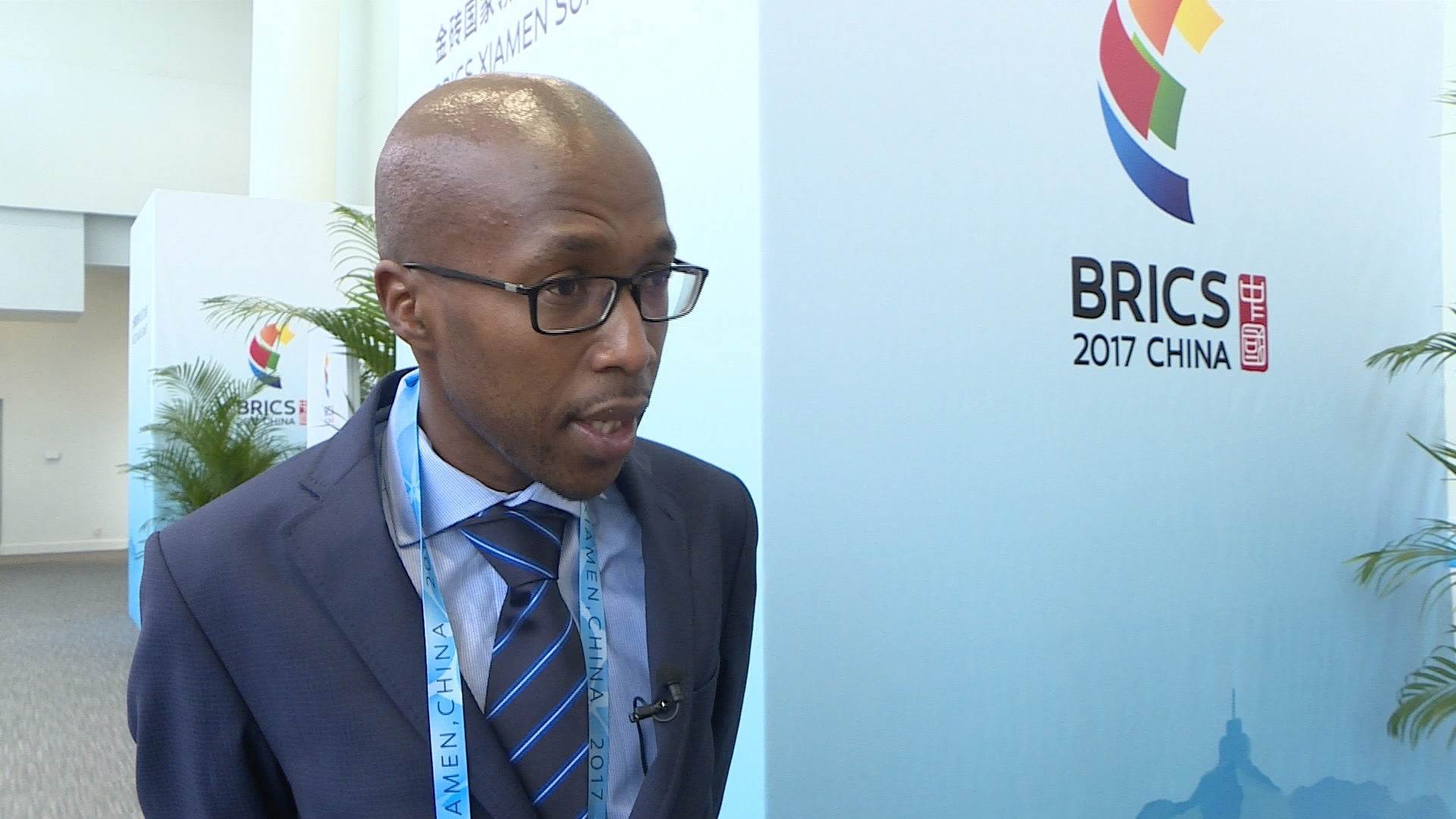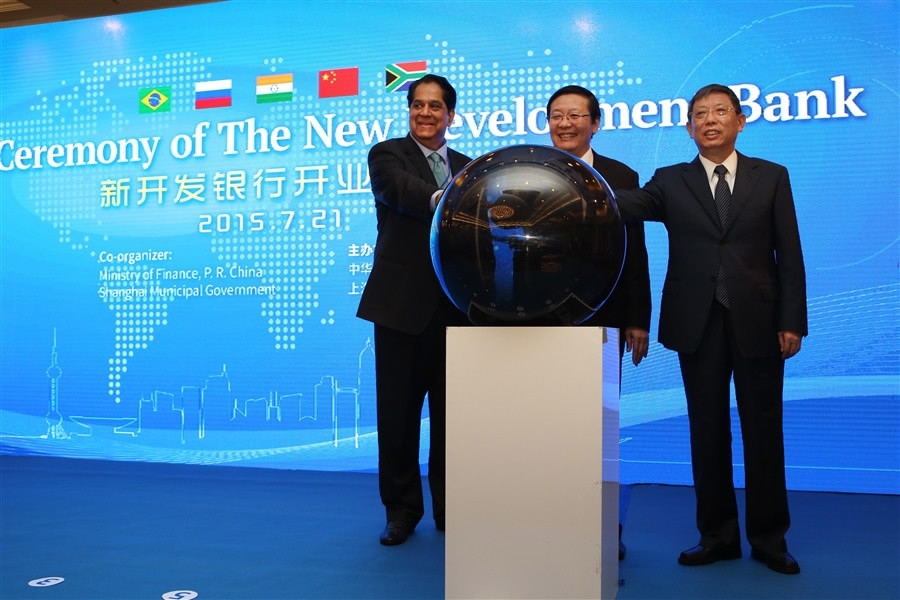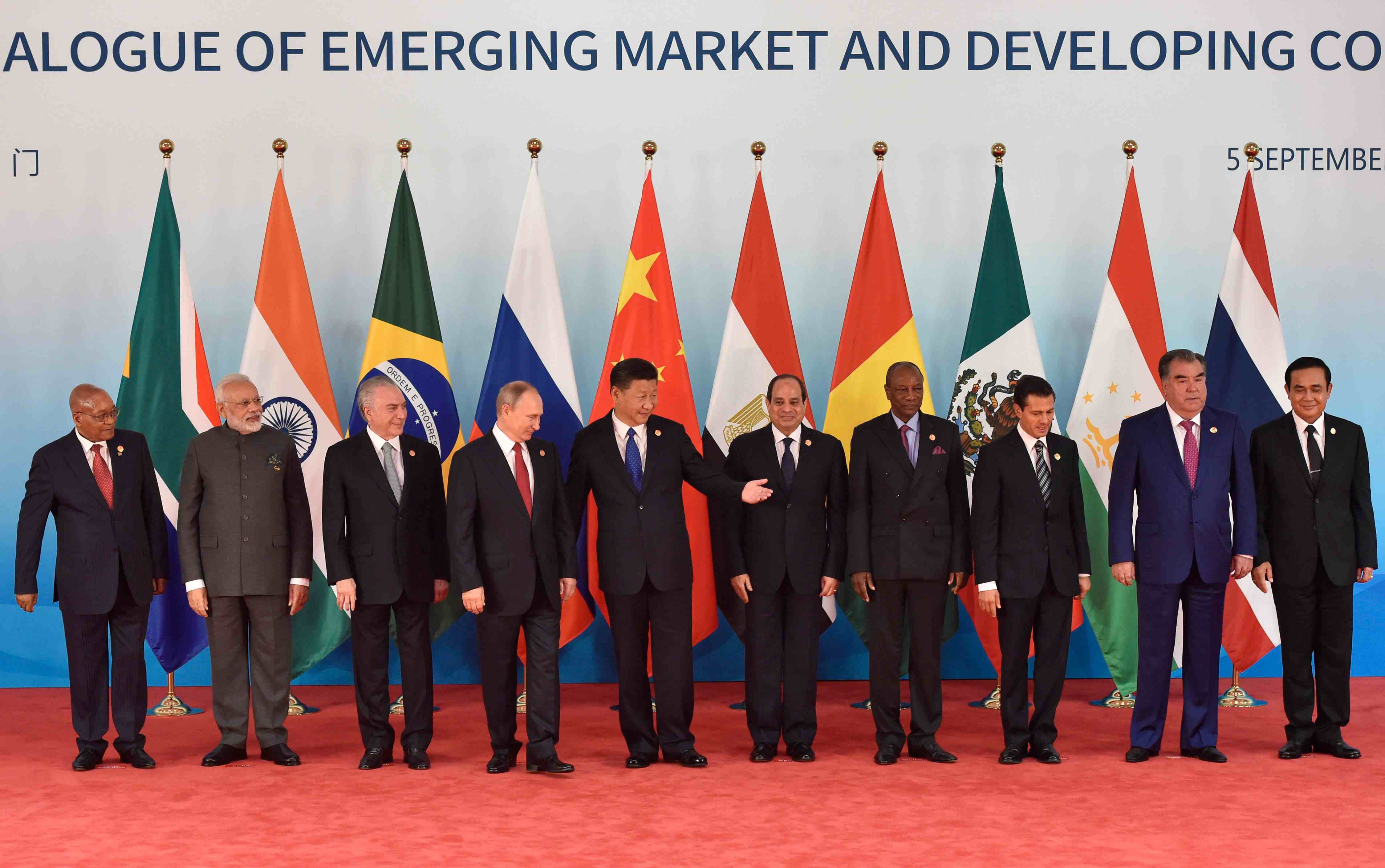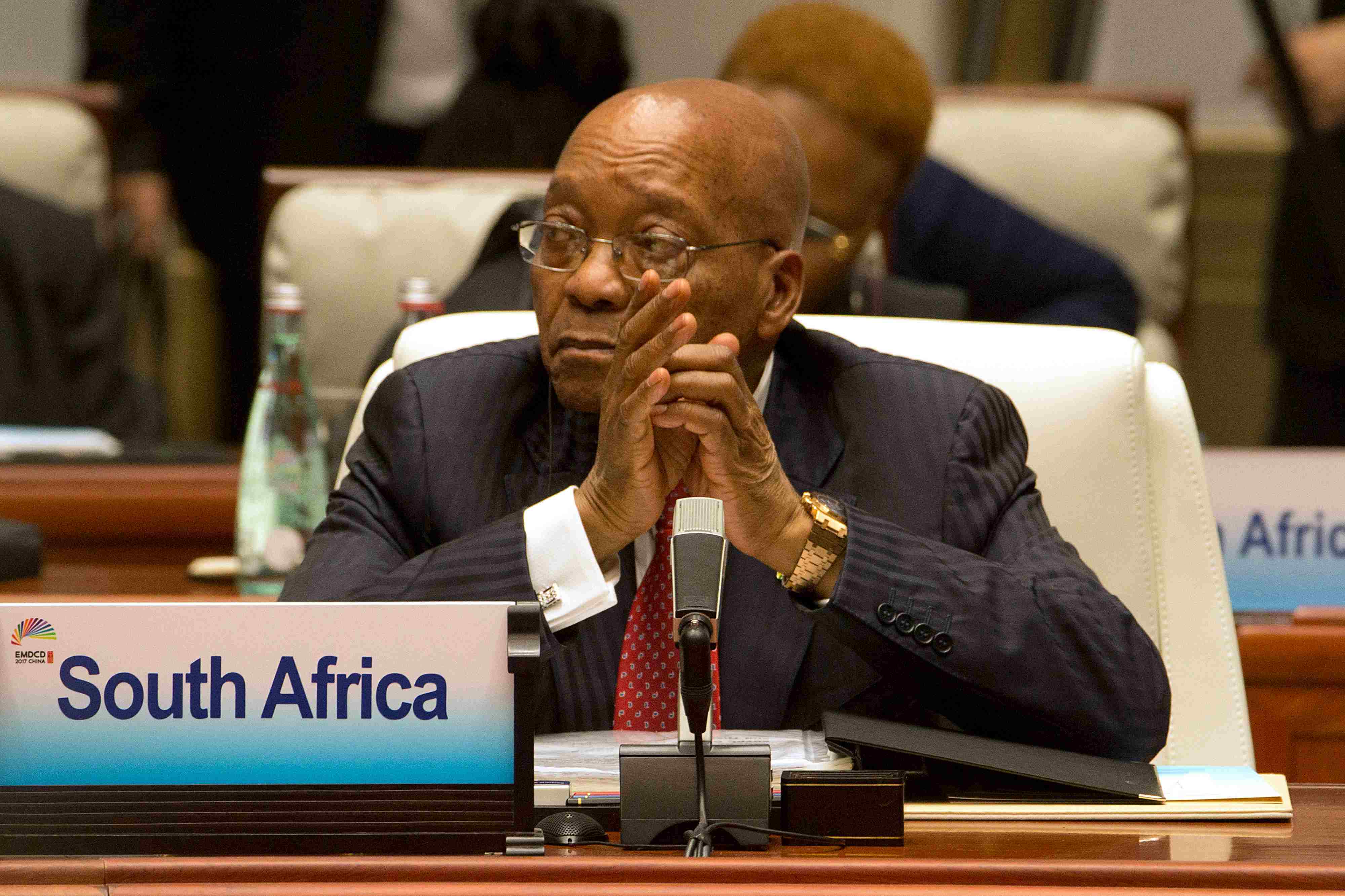
World
15:36, 05-Sep-2017
BRICS bank ‘gateway’ to Africa, says South Africa energy group chief
By Sim Sim Wissgott

The New Development Bank launched by BRICS countries in 2014 can be a gateway to investment in Africa, Luvo Makasi, chairman of South Africa’s Central Energy Fund, told CGTN on Tuesday as the 9th BRICS Summit wound down in Xiamen, southeastern China.
The NDB became operational last year, approving a total 1.55 billion US dollars in loans to seven projects - including on renewable energy and road infrastructure.
This year, the bank is expected to offer another 2.5 to 3.0 billion US dollars in loans.
Just ahead of the BRICS Summit, the NDB broke ground on its new headquarters in Shanghai, and last month the bank opened its African Regional Center in Johannesburg.

Shanghai Mayor Yang Xiong (R), Chinese Finance Minister Lou Jiwei (M) and K.V. Kamath, president of the New Development Bank (L), celebrate the NDB's official launch in Shanghai on July 21, 2015. /Shanghai Daily Photo
Shanghai Mayor Yang Xiong (R), Chinese Finance Minister Lou Jiwei (M) and K.V. Kamath, president of the New Development Bank (L), celebrate the NDB's official launch in Shanghai on July 21, 2015. /Shanghai Daily Photo
This center “will go a long way in making the BRICS bank a gateway to Africa investment,” Makasi told CGTN.
“We hope that...the establishment of the BRICS bank will grow to be one of the largest infrastructure banks in the world. If that can grow in the next 10 years, South Africa will be happy,” he added.
The BRIC mechanism - involving Brazil, Russia, India, China - was set up in 2006 to foster closer cooperation on trade and other areas between major emerging markets.
South Africa joined the club in 2010, adding the "S".
As the group enters its second decade, “we’re hoping to see increased investment and increased cooperation between the BRICS countries. Mostly because the emerging markets have got a bigger role to play in the development of the world economy,” Makasi said.

The leaders of BRICS countries and five other emerging markets and developing countries attend a group photo session on the sidelines of the 2017 BRICS Summit in Xiamen, China on September 5, 2017. /AFP Photo
The leaders of BRICS countries and five other emerging markets and developing countries attend a group photo session on the sidelines of the 2017 BRICS Summit in Xiamen, China on September 5, 2017. /AFP Photo
But the path ahead will not be without difficulties.
“We are still in a global competitive market, we’ve got lots of protectionism in the markets.”
“With the way the global market is at the moment, you’re going to face challenges with funding, you’re going to face challenges with accessing new markets. But we hope... we will be able to explore even greater markets,” Makasi said, predicting that BRICS expansion was unavoidable.

South African President Jacob Zuma attends the Dialogue of Emerging Market and Developing Countries on the sidelines of the 2017 BRICS Summit in Xiamen, China on September 5, 2017. /AFP Photo
South African President Jacob Zuma attends the Dialogue of Emerging Market and Developing Countries on the sidelines of the 2017 BRICS Summit in Xiamen, China on September 5, 2017. /AFP Photo
South Africa is often seen as a junior partner in the BRICS mechanism - its population, the size of its economy and its trade volume dwarfed by those of China and India - but Makasi was adamant his country can hold up its end of the bargain.
“We’re a well resourced country in terms of minerals, in terms of gas exploration, in terms of skill, our banking facilities are second to none and we think that we will be able to contribute well to the BRICS countries,” he insisted.
For now, South Africa, which will take over the rotating BRICS chairmanship from China next year, is focusing on building partnerships in the energy field.
During the Summit in Xiamen, South Africa signed a “historic” 400 million US dollar deal with Russian company Rosgeo, Makasi noted.
“We’ll be exploring one of the largest areas for oil and gas in the West Coast of South Africa. So for us it’s quite a historic day. And we hope that we’ll hit some gas in the next two, three years.”
1723km

SITEMAP
Copyright © 2018 CGTN. Beijing ICP prepared NO.16065310-3
Copyright © 2018 CGTN. Beijing ICP prepared NO.16065310-3